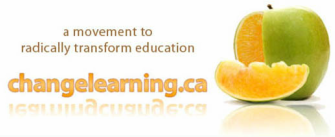|
The latest research and theories from evolutionary psychology, neurobiology and cognitive science demonstrate the various ways that humans have evolved over time to be extremely effective learners. John Abbott discusses what current research from various fields can tell us about how the adolescent brain works and how educators can work with adolescent learners to maximize their potential.
0 Comments
A high school in New Hampshire, USA, has developed a curriculum that revolves around working with the local community, as students carry out 150 hours of community service a year.
The service includes stacking wood or clearing leaves, and taking part in projects with local conservation and historical societies, such as protecting wildlife habitats and mapping early graves. Read more The centre:
The Saturna Ecological Education Centre (SEEC) is an experiential, place-based ecological learning centre on beautiful Saturna Island, British Columbia. Our programs: We provide Southern Gulf Islands students with elementary Eco-Adventures and high school Environmental Studies programs. Curriculum Connections: Our programs connect to the BC education curriculum, while encouraging learners to go deeper, immersing themselves in the natural world to feel, understand and act for the environment. Our explorations integrate science, social studies, physical education, language arts and fine arts to create unique learning adventures that promote critical thinking, social responsibility and personal growth. While our initial focus is on the students of our own School District #64 community, we are carefully planning and working towards offering our programs to learners of all ages from everywhere else! Please let us know if you’d like to join us! Read more Roots of Empathy (ROE) is an award winning, evidence-based classroom program that has shown dramatic effect in reducing levels of aggression and violence among school children while raising social/emotional competence and increasing empathy. The program reaches children from Kindergarten to Grade 8 across Canada, in English and French, in rural, urban, remote and Aboriginal communities both on and off reserve and internationally in Australia,New Zealand, and the United States.
Read more With a constructivist viewpoint of learning and a commitment to experiential education and authentic outcomes, Sharon MacKenzie takes her middle school classes out of the school and into the world. From spending 2 months of the year in a seniors’ residence to raising thousands of dollars through developing and running a small business, the results are amazing – for the community as well as for the students.
Read more With the tools of technology, the support of the Galileo Educational Network, and an inquiry-based model of learning, grade 10 classes took on the question: “What are the implications of living in a democratic society within a larger global context?” Working closely with a specialist in middle east politics from the University of Calgary, students examined democracy in light of the invasion of Iraq.
Read more Earl of March Secondary School has been recognized many times for its innovated technological excellence. Recently, however the focus has been on its hands-on approach from everything from marketing, to design technology to product completion. Students and trades people alike are taking a second look at what is happening at the Kanata based high school.
Read more In this article, grade four teacher Diane Petersen writes:
Ian’s work as a scientist began with a contradiction: “The scientists said that you can’t find any horny toads here. And I said, ‘My dad and I go out and catch them.’” The thirteen-year-old has now traveled to Idaho and California, where he and three classmates surprised working scientists by describing new discoveries about where the 3-inch-long lizards live and what they eat. Read more |
Categories
All
Archives
August 2015
|

 RSS Feed
RSS Feed
